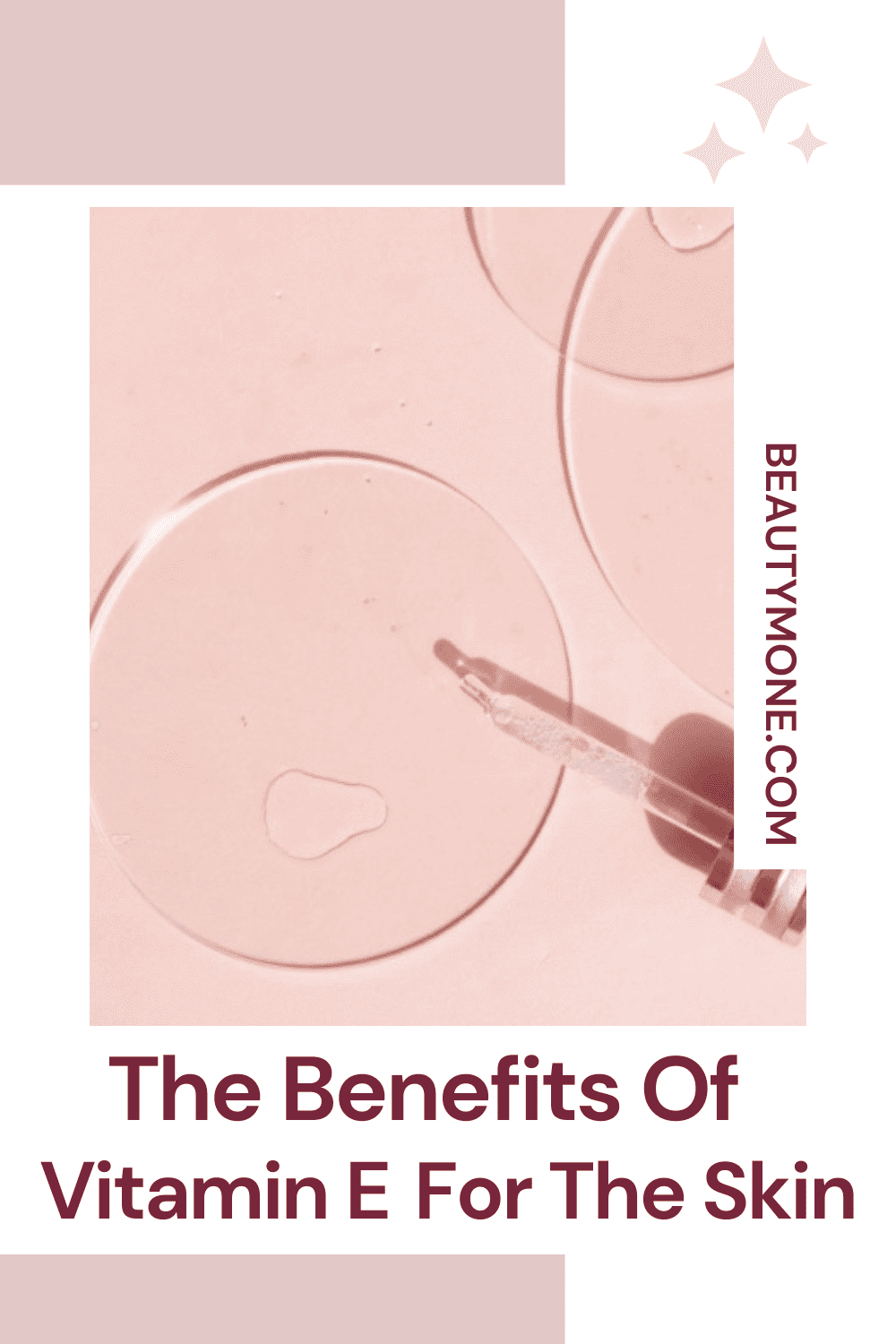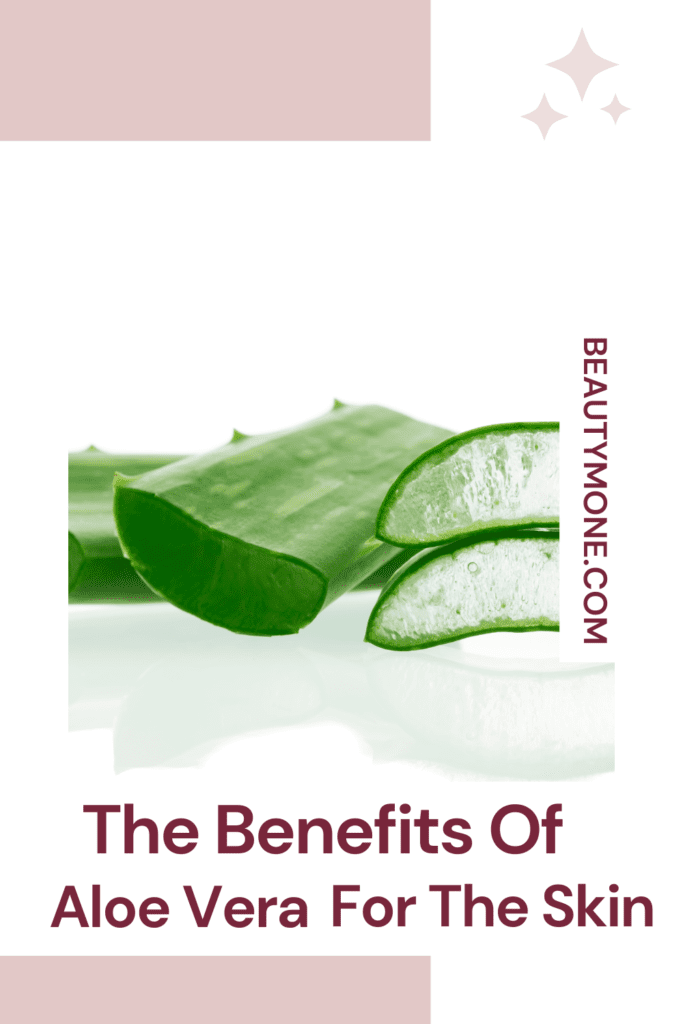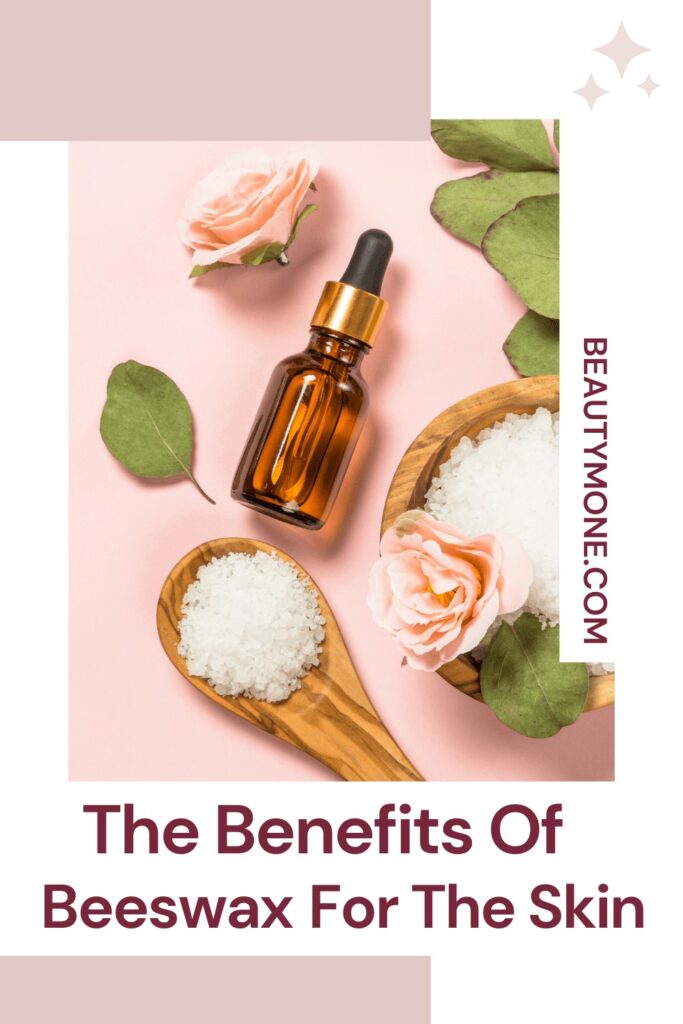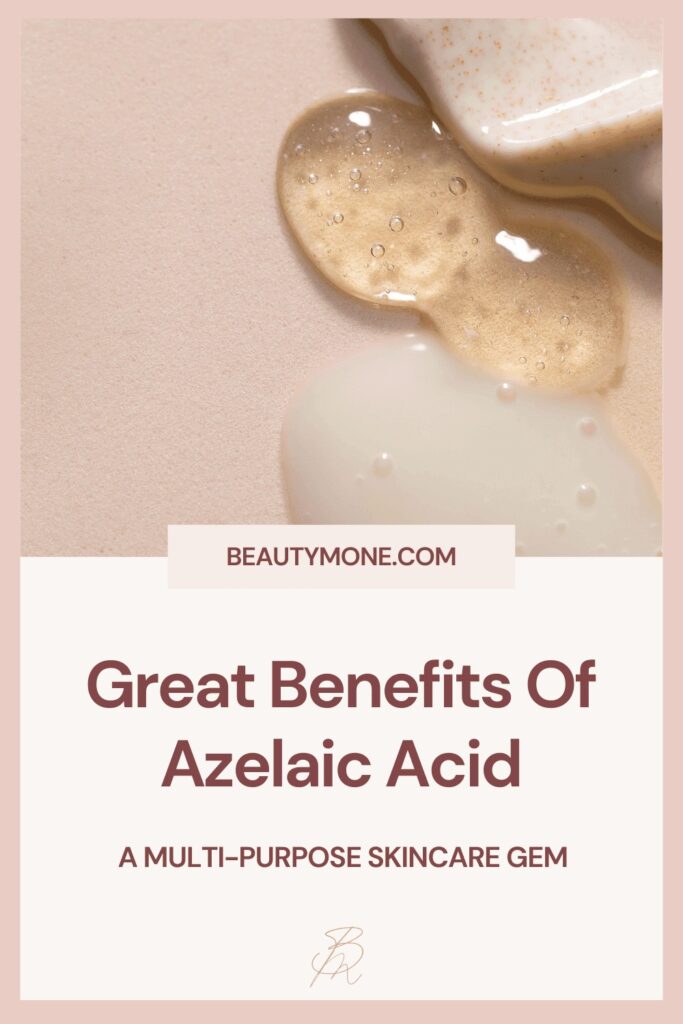
When it comes to skincare, there is no one-size-fits-all solution. Different skin types require different ingredients to maintain a healthy and glowing complexion. But with so many skincare ingredients on the market, it can be difficult to know which ingredients are best for your skin.
If you’re looking for a natural way to get glowing, youthful-looking skin, look no further than vitamin E. This essential nutrient has long been used in skincare routines to help protect and nourish the skin and reduce signs of aging.
In this article, we’ll discuss all Vitamin E: the benefits of Vitamin E for the skin, sources of Vitamin E, potential benefits for your skin, how to use it on your skin, possible side effects and precautions, plus FAQs about using Vitamin E on your skin so you can decide if it’s right for you!
What Is Vitamin E?
Vitamin E is a fat-soluble vitamin that is essential for human health. It plays a vital role in protecting our cells from damage caused by oxidation and helps to improve the appearance of skin and hair.
Vitamin E can be found naturally in certain foods such as nuts, seeds, vegetable oils, and green leafy vegetables. It’s also available as a supplement in capsule form or oil-soluble drops that you can add to your food or drinks.

Benefits Of Vitamin E For The Skin
Vitamin E is a vital nutrient that has numerous benefits for the skin. It is a powerful antioxidant that can help protect the skin from damage caused by UV radiation, pollution, and other environmental factors.
The antioxidant properties of vitamin E are particularly useful in slowing down the signs of aging, such as wrinkles, fine lines, and age spots. It also helps to keep skin hydrated and supple, giving it a healthy glow.
Overall, vitamin E is an essential nutrient that has many benefits for the skin. Let’s dive a little deeper into each of the benefits and what Vitamin E does for the skin.
Anti-Aging
Vitamin E has long been known to have anti-aging properties for the skin. As an antioxidant, it helps to neutralize free radicals that can damage skin cells and lead to wrinkles and fine lines. Vitamin E also helps to improve skin elasticity, which helps prevent premature aging of the skin.
One of the key ways that vitamin E helps to improve skin elasticity is by increasing collagen production. Collagen is a protein that is essential for maintaining skin elasticity and firmness. Vitamin E can help to stimulate collagen production, which can help to improve skin texture and reduce the appearance of wrinkles.
Another way that vitamin E helps to improve skin elasticity is by keeping skin hydrated. Hydrated skin is plump and firm, which can help reduce wrinkles and fine lines. Vitamin E helps to lock moisture into the skin, which can help to keep the skin looking and feeling hydrated and supple. This can help to give your skin a healthy, youthful glow.
UV Protection
Vitamin E is a powerful antioxidant that helps protect the skin from damage caused by UV radiation, pollution, and other environmental stressors. UV radiation can cause damage to the skin’s DNA, leading to skin cancer. Vitamin E can help protect the skin from this damage by neutralizing free radicals and repairing sun-damaged skin.
Vitamin E is particularly useful in protecting the skin from the damaging effects of UV radiation. UV radiation can cause damage to the skin’s DNA, leading to skin cancer. Vitamin E helps to neutralize free radicals that can cause this damage and also helps to repair sun-damaged skin. When applied topically, vitamin E can help to protect the skin from UV radiation, reducing the risk of sun damage and skin cancer.
Vitamin E is also effective in protecting the skin from other environmental stressors. Pollution, for example, can cause damage to the skin, leading to premature aging and wrinkles. Vitamin E helps to protect the skin from the damaging effects of pollution by neutralizing free radicals that can cause damage to the skin.
It’s also found in many skincare products, such as sunscreens, moisturizers, and face oils, so it’s easy to find a product that works for you. Incorporating vitamin E into your skincare routine can help to protect your skin from UV radiation and other environmental stressors, keeping it looking youthful and radiant.
Soothing
Vitamin E also has soothing properties, making it an excellent choice for sensitive or irritated skin. It can help reduce inflammation in the body and soothe irritated areas of the skin, providing relief from conditions such as eczema, psoriasis, and rosacea.
Vitamin E is a powerful antioxidant that can help reduce inflammation in the body and soothe irritated areas of the skin. It works by neutralizing free radicals that can cause inflammation and damage to the skin. When applied topically, vitamin E can help to reduce redness and irritation, making it a great choice for those with sensitive or irritated skin.
One of the key ways that vitamin E helps to soothe irritated skin is by reducing inflammation. Inflammation can cause redness, itching, and irritation, making skin feel uncomfortable and irritated. Vitamin E can help to reduce inflammation, which can provide relief from conditions such as eczema, psoriasis, and rosacea.
It’s also found in many skincare products, such as moisturizers, serums, and face oils, so it’s easy to find a product that works for you. Incorporating vitamin E into your skincare routine can help soothe irritated skin and reduce inflammation, leaving it calm and comfortable.
Repairing
Finally, Vitamin E may also help protect against certain types of cancer, as well as help to repair sun-damaged skin. It’s a powerful antioxidant that can help to neutralize free radicals and repair sun-damaged skin.
Vitamin E can help to repair sun-damaged skin by neutralizing free radicals that can cause damage to the skin. UV radiation can cause damage to the skin’s DNA, leading to skin cancer. Vitamin E can help protect the skin from this damage by neutralizing free radicals and repairing sun-damaged skin.
When applied topically, vitamin E can help to reduce redness and irritation, making it a great choice for those with sensitive or irritated skin.
Another way that vitamin E can help to repair sun-damaged skin is by promoting the growth of new skin cells. Vitamin E helps to stimulate the production of new skin cells, which can help to repair sun-damaged skin.
So does vitamin E remove dark spots as well? Yes, it helps to reduce the appearance of dark spots and hyperpigmentation.
Sources and Forms of Vitamin E
Vitamin E is an essential nutrient with many health benefits and can be found in various foods. Some sources include nuts, seeds, vegetable oils, leafy green vegetables, and fortified cereals. It can also be taken as a supplement in either capsules or tablets.
Vitamin E comes in two forms: alpha-tocopherol (the most active form) and gamma-tocopherol (the less active form). Alpha-tocopherol is considered the more beneficial type, so it’s important to choose supplements with this specific form when possible.

How to Use Vitamin E on Your Skin
Vitamin E is great for your skin and can be used topically to help moisturize, protect the skin from environmental damage, soothe irritation, reduce inflammation, and even improve scarring. To apply it directly onto your skin, you’ll want to start by choosing a Vitamin E oil or cream product.
Before applying it, ensure your face has been cleansed with a gentle cleanser and then pat dry. After that, massage the product into the face in circular motions until it’s fully absorbed into your skin. And lastly, you want to finish off with a lightweight moisturizer and/or sunscreen.
Tips for Getting the Most Out of Your Vitamin E Treatment
Here are some tips if you want to implement Vitamin E through food or supplements:
- Taking the correct dosage of vitamin E is essential for getting the most out of your treatment. It’s important to consult your doctor or pharmacist first to determine your recommended dosage, as it varies based on age and other factors.
- Additionally, be sure you are taking a quality form of Vitamin E; look for natural sources like nuts, avocados, and leafy greens in addition to supplements if needed.
- Taking Vitamin E with food can also help maximize its effectiveness – try pairing it with meals that contain healthy fats like olive oil or fish oil for optimal absorption!
Here are some tips if you want to implement Vitamin E in your skincare routine (as well):
- Use a high-quality vitamin E oil or serum: Look for a product that contains pure vitamin E oil or vitamin E in a serum form.
- Apply to clean skin: To ensure that your skin can absorb vitamin E properly, apply it to clean skin.
- Use regularly: Use vitamin E regularly as part of your skincare routine for best results.
- Mix with other beneficial ingredients: Vitamin E can be even more effective when combined with other beneficial ingredients, such as vitamin C or hyaluronic acid.
- Store properly: Vitamin E can degrade when exposed to light and air, so store your vitamin E product in a cool, dark place and keep the lid tightly closed.
- Be patient: Vitamin E can take time to show results, so be patient and consistent with your use.
- Protect your skin from the sun: Vitamin E can help protect your skin from the harmful effects of the sun, but it’s still important to wear sunscreen and limit sun exposure.
Potential Side Effects On The Skin When Using Vitamin E
Vitamin E is an essential nutrient that can be found in many foods. However, when using it as a topical treatment, it may cause some skin side effects, such as mild redness and stinging. It might also cause contact dermatitis if you are allergic or sensitive to the ingredient.
People with eczema should use Vitamin E cautiously since its oil-based nature could potentially worsen their condition. Always consult your doctor before trying any new skincare treatments!
Finally, Vitamin E oil should not be used on broken or irritated skin as it may worsen symptoms and delay healing. If you experience any signs of adverse reactions from topical Vitamin E products, such as redness, itching, burning sensation, or irritation, discontinue use immediately and consult a doctor if symptoms persist.
Does Vitamin E Clog Pores?
Vitamin E is not known to clog pores, but the formulation of the product that contains vitamin E can determine if it will clog pores.
For example, suppose the vitamin E product contains comedogenic (pore-clogging) ingredients such as heavy oils or waxes. In that case, it could lead to clogged pores and breakouts.
When choosing a vitamin E product for your skin, it is important to look for non-comedogenic formulas that won’t clog your pores. Besides, it’s best to patch-test any new products before using them on your face to check for any adverse reactions.
If you have oily or acne-prone skin, it’s especially important to choose a lightweight vitamin E product and use it in moderation. Overusing any product can lead to pore-clogging and breakouts, so finding the right balance for your skin type is crucial.
The Best Skincare Products With Vitamin E
Here are some of the best Vitamin E for skin products to try yourself:
- Alpha-H Vitamin E with Macadamia
- Klairs Freshly Juiced Vitamin E Mask
- Fenty Skin Plush Puddin’ Intensive Recovery Lip Mask Vitamin E
- Cosrx Vitamin E Vitalizing Sunscreen Spf 50+
- Iope Vitamin E Ceramide Milk
- Iope Vitamin E Ceramide
- Derma E Tea Tree & Vitamin E Relief Cream
Shop more of my favorite products here: https://shopmy.us/beautymone.

Alternatives To Using Vitamin E On The Skin
Vitamin E is a popular choice for skin care because of its antioxidant properties and ability to help reduce inflammation. However, other alternatives can also offer great benefits to your skin.
Coconut oil is high in vitamin E, making it an excellent moisturizer; plus, it helps create a protective barrier on the surface of your skin. Avocado oil is another option – packed with vitamins and fatty acids to nourish the skin while helping keep bacteria away.
Finally, aloe vera has natural healing powers, making it one of Mother Nature’s best gifts when trying to soothe irritated or damaged skin.
Conclusion On What Does Vitamin E Do For The Skin
The benefits of Vitamin E for the skin are very diverse! Vitamin E is a powerful nutrient that has many benefits for the skin. It helps to protect the skin from free radical damage caused by UV exposure, pollution, and other environmental factors.
Additionally, vitamin E can help reduce inflammation, soothe irritated areas of the skin, and improve skin elasticity, slowing down signs of aging such as wrinkles, fine lines, and age spots. It also helps keep moisture locked into the skin giving it a healthy glow.
Vitamin E is a natural, gentle ingredient on the skin and easy to incorporate into your skincare routine. Incorporating Vitamin E into your skincare routine can help keep your skin youthful and radiant.
You May Also Like…
Another post on this topic you might find useful is Benefits Of Olive Oil For The Skin. I’ve also written about the Benefits Of Grapeseed Oil For The Skin, so feel free to check that out or bookmark it for later!
- Benefits Of Cucumber For The Skin
- What Does Vitamin D Do For Your Skin
- Benefits Of Lavender Oil For The Skin
- Benefits Of Mango Butter For The Skin
- What Does Hyaluronic Acid Do For The Skin
FAQ



